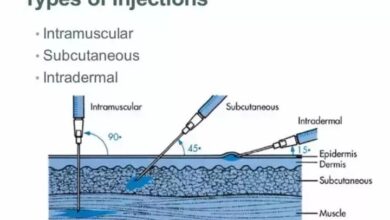What Does A Drug Safety Associate Do?

Drug safety associate is the entry-level employment for pharmacy or life science graduates in the field of drug safety. The drug safety associate is primarily engaged in case creation, reviewing for minimum safety information (MSI). A pharmacy degree, bachelor’s degree in science, life sciences, medicine, nursing, or healthcare from a reputed educational institute, and a short period of on-field training are required before applying for a job as a drug safety officer or associate.
A drug safety associate also monitors all the post-marked products, ensuring that they are safe for the people. The safety officer is actively involved in doing assessments of adverse event writings, writing update reports on safety, conducting quality checks on write-ups penned by other drug safety officers and sending drug-related case reports to other branch offices as and when they are needed.
As a drug safety associate, the uniqueness and the specified nature of the job inspire many degree holders to pursue their careers in this line. Advanced medical technology and progression in safety features have made it easier to identify drug-related issues and evoke the interest of science graduates.
Responsibilities of a Drug Safety Associate:
- Adverse Event Reporting: Drug Safety Associates are responsible for collecting, reviewing, and documenting information related to adverse events (AEs) associated with pharmaceutical products. Adverse events refer to any untoward medical occurrence, including side effects, medication errors, and product complaints. The associate must ensure accurate and timely reporting of these events to regulatory authorities.
- Case Processing: Drug Safety Associates play a pivotal role in processing individual cases of adverse events. This involves the detailed analysis of medical and scientific data, extracting relevant information, and entering it into pharmacovigilance databases. Thorough case processing is essential for identifying patterns, trends, and potential safety issues.
- Signal Detection: Identifying signals or potential safety concerns is a critical aspect of the role. Drug Safety Associates analyze data to detect any patterns or trends that may indicate a safety issue. This requires a keen understanding of medical terminology, pharmacology, and the ability to interpret complex scientific data.
- Regulatory Compliance: Ensuring compliance with local and international regulatory requirements is paramount. Drug Safety Associates must stay updated on evolving regulations and guidelines to ensure that the pharmacovigilance activities align with the legal and ethical standards set by health authorities.
- Risk Management: Developing and implementing risk management strategies is another crucial responsibility. This involves working closely with cross-functional teams to assess and mitigate potential risks associated with the use of pharmaceutical products.
- Communication: Effective communication is key in pharmacovigilance. Drug Safety Associates interact with various stakeholders, including healthcare professionals, regulatory agencies, and internal teams. Clear and concise communication is necessary to convey safety information, discuss potential risks, and contribute to the overall risk-benefit assessment of a drug.
- Documentation and Record Keeping: Maintaining accurate and detailed records is essential for compliance and transparency. Drug Safety Associates document all activities, decisions, and communications related to pharmacovigilance to create a comprehensive audit trail.
- Quality Assurance: Implementing and maintaining quality assurance processes is critical to ensure the accuracy and reliability of pharmacovigilance data. Drug Safety Associates participate in internal and external audits to validate compliance with quality standards.
Skills and Qualifications:
- Medical and Scientific Knowledge: A strong background in life sciences or a related field is typically required. Drug Safety Associates need a solid understanding of medical terminology, pharmacology, and the mechanisms of action of various drugs.
- Attention to Detail: Given the importance of accurate data collection and analysis, attention to detail is a crucial skill. Drug Safety Associates must meticulously review and process information to identify potential safety signals.
- Analytical Skills: The ability to analyze complex scientific data and draw meaningful conclusions is essential. Drug Safety Associates use analytical skills to identify patterns, assess risks, and contribute to the decision-making process.
- Communication Skills: Effective communication is vital when interacting with internal and external stakeholders. Drug Safety Associates must convey complex scientific information in a clear and understandable manner.
- Regulatory Knowledge: Keeping abreast of evolving regulatory requirements is critical for success in this role. Drug Safety Associates must be familiar with local and international regulations governing pharmacovigilance.
- Teamwork and Collaboration: Pharmacovigilance is a collaborative effort that involves working with various teams, including clinical development, regulatory affairs, and quality assurance. Drug Safety Associates must be effective team players.
- Time Management: The workload in pharmacovigilance can be dynamic and demanding. Drug Safety Associates need strong time management skills to prioritize tasks and meet deadlines.
- Ethical Judgment: Drug Safety Associates often deal with sensitive information and must exercise ethical judgment when assessing and reporting adverse events. Integrity and a commitment to patient safety are paramount.
Challenges Faced by Drug Safety Associates:
- Data Volume and Complexity: The sheer volume and complexity of data in pharmacovigilance pose significant challenges. Drug Safety Associates must navigate through vast amounts of information and identify relevant details to ensure accurate reporting.
- Global Regulatory Variability: Dealing with diverse regulatory requirements across different regions and countries can be challenging. Drug Safety Associates must stay informed about and adapt to changes in regulatory landscapes.
- Emerging Technologies: The integration of new technologies, such as artificial intelligence and machine learning, into pharmacovigilance processes introduces challenges and opportunities. Drug Safety Associates need to adapt to these technologies while ensuring their reliability and compliance.
- Public Perception: The public’s perception of drug safety can impact the pharmaceutical industry. Drug Safety Associates must navigate public concerns and maintain transparency to build and retain trust.
- Continuous Learning: The field of pharmacovigilance is dynamic, with evolving scientific advancements and regulatory changes. Drug Safety Associates need to engage in continuous learning to stay updated and relevant in their roles.
Significance of Drug Safety:
- Patient Safety: The primary goal of drug safety is to ensure the well-being of patients. By monitoring and addressing potential safety concerns, Drug Safety Associates contribute to minimizing risks associated with pharmaceutical products.
- Regulatory Compliance: Adhering to pharmacovigilance practices is a regulatory requirement for pharmaceutical companies. Compliance ensures that products meet the necessary safety standards set by health authorities.
- Risk-Benefit Assessment: Drug safety assessments contribute to the overall risk-benefit profile of a drug. This information is crucial for healthcare professionals, regulatory agencies, and patients when making informed decisions about treatment options.
- Product Lifecycle Management: Drug safety activities extend throughout the entire lifecycle of a pharmaceutical product. From early clinical trials to post-marketing surveillance, continuous monitoring is essential for identifying and addressing safety issues.
- Industry Reputation: Ensuring the safety of pharmaceutical products is integral to maintaining the industry’s reputation. Companies that prioritize drug safety demonstrate a commitment to ethical practices and patient well-being.
- Innovation and Research: A robust pharmacovigilance system fosters innovation and research. By identifying and addressing safety concerns, companies can improve existing products and contribute to the development of new and safer therapeutic options.
What is the career progression like in the drug safety profession?
As soon as an individual obtains experience of 2-3 years as a drug safety associate and develops the expected skill sets (narrative and scientific writing, medical coding and superior understanding of medical terms, ICH-GCP, essential understanding of regulatory affairs and compliance, etc) he/she can go on to grow to be a Drug Safety Scientist.
Qualified Person for Pharmacovigilance QPPVs jobs are mainly concerned with marketed drugs and those about to be authorized, but as QPPVs are considered by many to be subject matter experts, their expertise is utilized across the discipline and wider business. These senior pharmacovigilance roles will only be held by very experienced professionals and their focus is to understand, plan for, and advise upon the regulations and requirements that companies must adhere to. This is a highly strategic appointment and one of great importance.
Aspiring drug safety professionals can get more information on drug safety from:
1. Online ‘Index to Drug Specific Information: includes only drugs that have been the subject of a Drug Safety Communication or equivalent (previously known as Early Communication/Health Care Professional Information Sheet), and provides direct access to the content of each communication.
2. Med Watch Alerts: contain actionable information that may affect both treatment and diagnostic choices and provide timely medical product information. The MedWatch gateway provides opportunities to sign up for MedWatch email updates, subscribe to RSS Feed safety alerts, and follow MedWatch on Twitter.
3. Daily Med: a website developed with the National Library of Medicine, gives physicians and patients electronic access to FDA-approved drug labels. The presentation includes a ‘tabbed’ format, providing quick access to specific portions of product labeling, including reproductions of the carton and container.
4. Drugs@FDA: an online database of approved drug products, allows a search for information regarding drugs and biologic products by drug name or active ingredient. Electronic links to the product approval history, approval letters, reviews and related documents, labeling information, REMS information and medication guides are provided.
5. Complete transcripts of FDA Advisory Committee meetings, and schedules of upcoming meetings and agendas, are available online.
In conclusion, the role of a Drug Safety Associate is multifaceted and integral to the pharmaceutical industry. These professionals contribute significantly to patient safety, regulatory compliance, and the overall success and reputation of pharmaceutical products. With a combination of medical knowledge, analytical skills, and a commitment to ethical practices, Drug Safety Associates play a crucial role in shaping the landscape of drug development and ensuring the well-being of patients worldwide.





